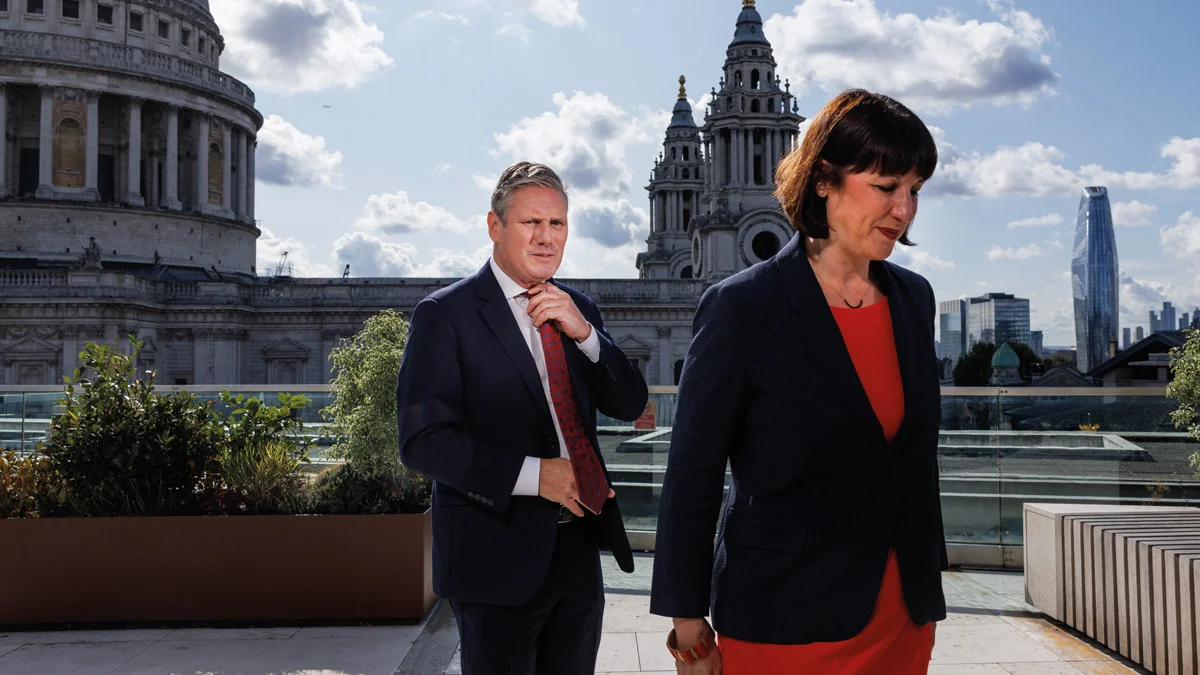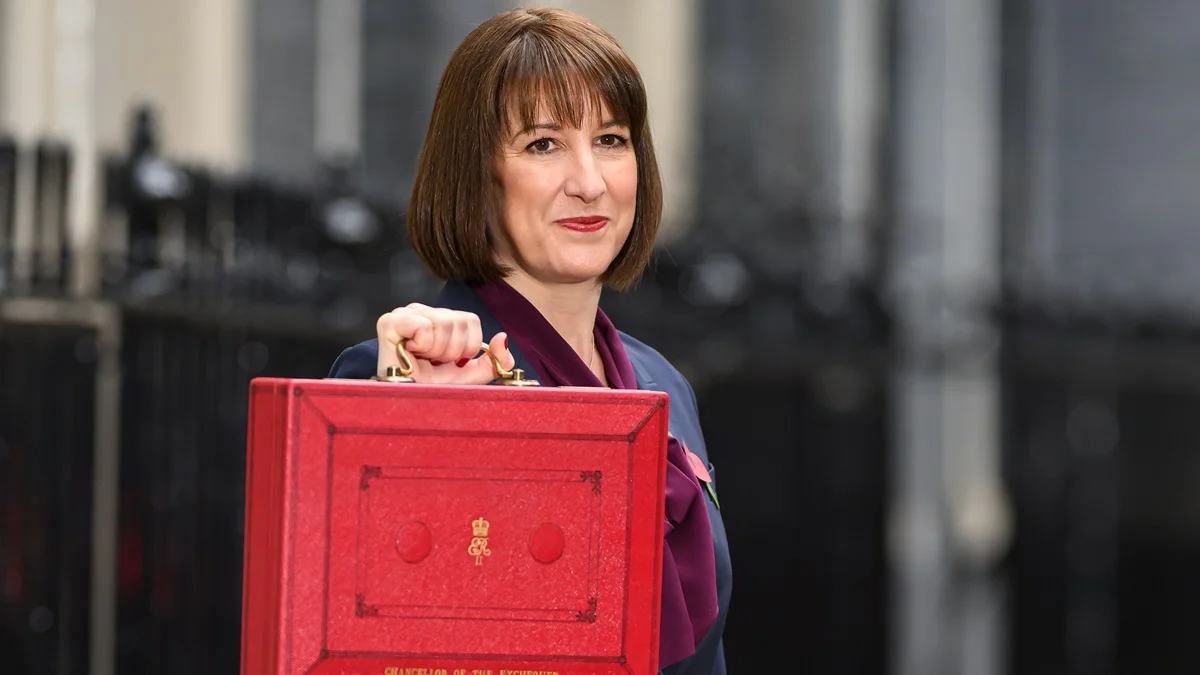
As Cabinet ministers surveyed the aftermath of the biggest Budget in over a generation, many of them had significant cause for concern. Rachel Reeves, the chancellor, went maximalist on every front: the biggest tax rises for a generation, the biggest increase in borrowing for a generation, soaring levels of public spending.
In many senses, it was a classic Labour Budget. There were major investments in the NHS and schools funded by what one prominent economist billed as a “debt-financed spending splurge”. The books were balanced by decisions that took the tax burden to the highest level on record.
Ministers are worried, particularly by the jarring change in Labour’s narrative. Sir Keir Starmer, the prime minister, and Reeves went into the general election saying that growth would be their number one priority. They boasted that Labour was now the party of business and wealth creation as they set about wooing the City, committing to transform Britain into the fastest growing in the G7 group of developed nations.
How that growth will be achieved is now the biggest question facing Labour. The Office for Budget Responsibility (OBR), which provides official forecasts, suggests that the Budget will have the opposite effect, with a slight downturn in growth during the course of this parliament.
One of the biggest reasons for the anaemic levels of economic growth is tax. The Budget is predicated on a £25bn increase in employers’ national insurance contributions, which companies are expected to respond to in two ways – by restraining pay and imposing higher prices.
It means that while the tax is levied on employers, it will ultimately be paid by employees in what appears to be a direct breach of Labour’s commitments in the run-up to the general election. Labour’s manifesto was explicit, stating that there would be no increase in income tax, national insurance or VAT. The party now points to a caveat that preceded the sentence stating that it would not raise taxes on “working people”.
Perhaps not surprisingly, this has led to accusations from the Tories that Labour effectively lied in opposition. But, more significantly, prominent economists including the Institute for Fiscal Studies have made the same claim. Reeves herself has admitted that the tax will hit the wages of working people, although she still contends it is not a breach of the manifesto.
Businesses have greeted the Budget with dismay. The Institute of Directors says employers face the “perfect storm” of an increase in national insurance, an increase in the minimum wage and the cost of implementing Labour’s overhaul of workers’ rights.
Any one of these alone would have had a significant impact on businesses as they weigh up their options for the future. Taken together they represent a major economic challenge. Labour’s two other major tax rises – an inheritance tax raid targeting pension pots, agricultural land and businesses, and an increase in capital gains tax on the sale of shares – have added to the sense of resentment.
Sir James Dyson, one of Britain’s leading businessmen and a big landowner, described Reeves’s budget as “spiteful” and warned that it would be the “death of entrepreneurship”. Some of the tax rises will raise relatively little – the inheritance tax changes on farms and family businesses will raise £520m – but the scale of the backlash has taken Labour by surprise. Steve Reed, the environment secretary and MP for Streatham and Croydon North, found himself being castigated for wearing a £420 pair of wellies. Farmers resorted to bringing their tractors to Parliament Square as part of nationwide protests against the tax rate.
It’s not just business leaders and farmers who are in revolt. Labour’s plan to increase employers’ rate of national insurance will also hit GPs, care homes, pharmacies and hospices. They are now warning of the threat of closures and accusing the government of sabotaging its own investment in the NHS.
In the face of so much criticism, Reeves has elected to stand firm on all fronts. She has said she did not want to deliver such a painful Budget but was left with no choice because of the dire state in which the Tories left the public finances.

The problem for Reeves and Labour, however, is that the argument does not appear to have traction. Voters are blaming Labour, with polls suggesting that the popularity of Reeves and Starmer has plummeted since taking office. Reeves says she is confident that she can turn the economy around and points to three major reforms: an overhaul of planning regulations, a transformation of the pensions industry and changes to the welfare system. While all have genuine potential, they will take time and carry a high degree of risk.
Take planning. Experts believe that the government is highly unlikely to hit its target of building 1.5 million homes during the course of this parliament, however dramatic the reforms. The OBR refused even to score them on the basis that they have not yet been implemented.
Reeves is also attracted to a Canadian-style pension reform, which would involve merging Britain’s local authority pension schemes. Experts believe this could free £225bn worth of surpluses in final-salary or defined benefit pension schemes. However, merging the schemes would be enormously complex and require close regulation to mitigate any risk.
Lastly, welfare reform: half of all claims for the main benefit, Universal Credit, will be for poor health by the end of the parliamentary term, with the cost of payments for sickness topping £100bn a year for the first time.
Ministers are drawing up a “carrot and stick” approach for overhauling the welfare system, but any change is likely to be hugely contentious, not least among Labour MPs. At present many backbenchers are pushing for more expenditure in the form of ending the two-child cap, not less. Any change is likely to be a tough sell.
So where will the growth come from? It could take some time. In the Commons, Reeves said that the government’s investment would lead to a 1.4 per cent increase in growth in the “longer term”. She did not, however, highlight the OBR’s not insignificant caveat around that figure – that the 1.4 per cent growth would come in 2073-74, by which time most of the Cabinet, including Starmer and Reeves, are likely to be dead.
Steven Swinford is the political editor of The Times.
Related and recommended

Fashion entrepreneur Dessi Bell explains why customers are looking for something different when they shop on the high street

Think assistants are just admin managers? Think again. They might be your greatest business asset

The home appliances inventor and entrepreneur explains what he’s learned from sponsoring Brentford FC

An ill-fated product launch 40 years ago became one of the biggest marketing blunders ever and still holds lessons today

